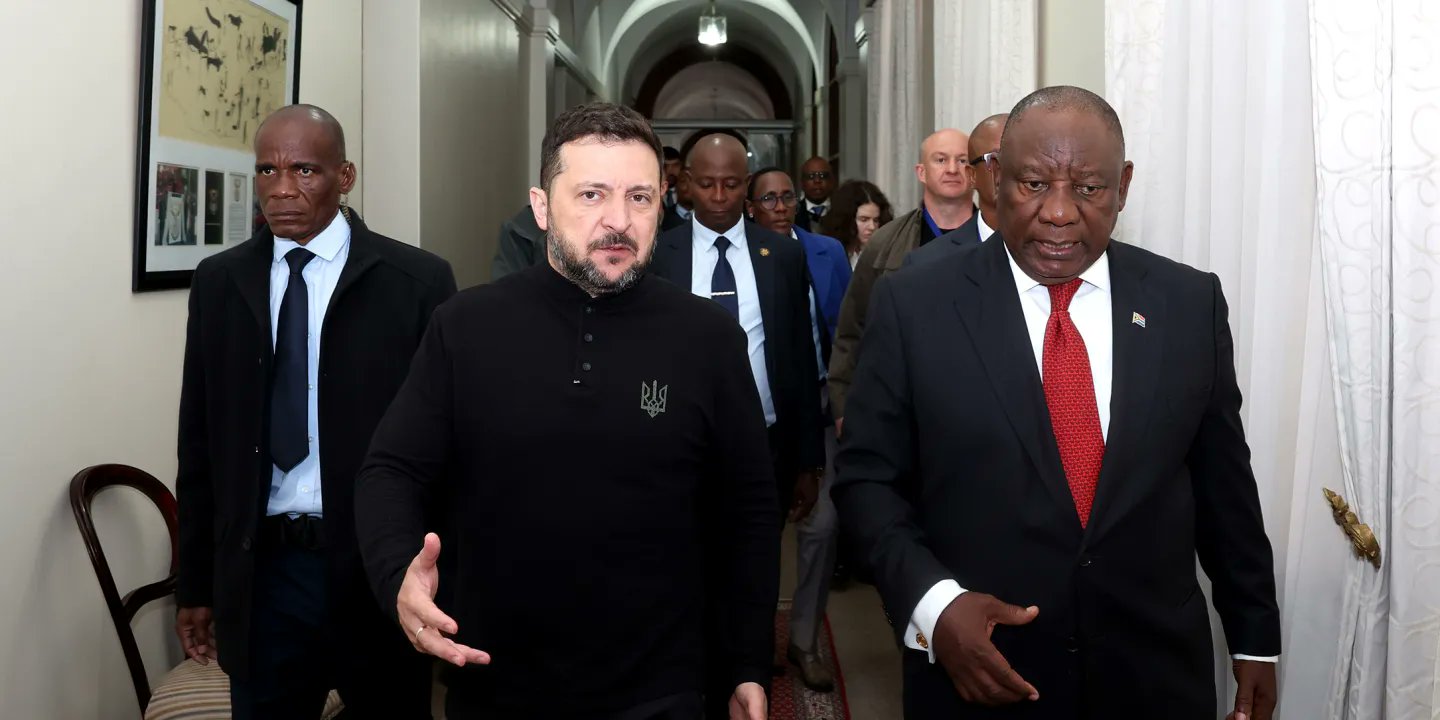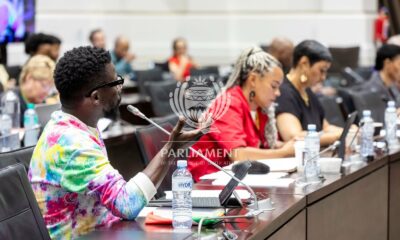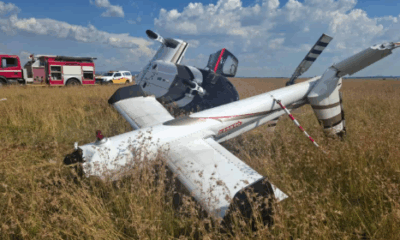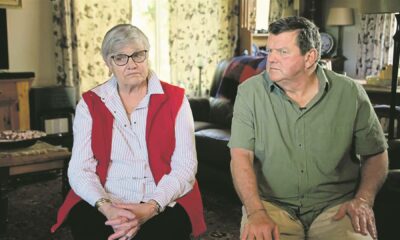News
Trapped and Misled: How 17 South African Men Ended Up in Ukraine’s War Zone

Trapped and Misled: How 17 South African Men Ended Up in Ukraine’s War Zone
What was supposed to be a chance at a better life turned into a nightmare for 17 South African men now trapped in the war-torn Donbas region of Ukraine.
The men aged between 20 and 39, say they were promised well-paying jobs abroad, only to find themselves caught in the middle of one of the world’s most dangerous conflicts. Sixteen are from KwaZulu-Natal, and one from the Eastern Cape, regions where unemployment and poverty make overseas job offers sound like golden tickets.
Now, those promises have crumbled into fear and regret. The men have made desperate calls to Pretoria for help to come home.
Promises, Lies, and a War They Never Chose
According to Presidency spokesperson Vincent Magwenya, the group was “lured under the pretext of lucrative employment contracts” but those jobs turned out to be linked to foreign military operations in Ukraine’s conflict zone.
What began as a recruitment drive disguised as work opportunities has now landed them in potential violation of international law. Under South Africa’s Foreign Military Assistance Act of 1998, citizens are prohibited from offering or engaging in military service for a foreign power without government authorisation.
President Cyril Ramaphosa has since ordered a full investigation into how these men were recruited and who profited from their exploitation.
A Crisis Reflecting a Bigger Problem
While this story may seem like an isolated incident, it echoes a deeper issue: the desperation of South Africa’s unemployed youth.
KwaZulu-Natal, in particular, faces stubbornly high joblessness and limited prospects for young men in townships and rural areas. With social media and online recruiters offering “international work” and “security contracts,” many fall prey to scams that blur the line between employment and exploitation.
“People are looking for a way out,” said a Durban-based community leader on X (formerly Twitter). “These recruiters know that desperation makes young men easy targets.”
Government’s Diplomatic Balancing Act
Pretoria has confirmed that it’s now working through diplomatic channels to secure the safe return of the trapped South Africans.
But the process won’t be simple, the Donbas region is under Russian control, making access for international agencies extremely difficult.
“The President strongly condemns the exploitation of vulnerable South Africans by individuals working with foreign military entities,” Magwenya said, emphasizing that no citizen should be drawn into another nation’s war.
Analysts say the crisis puts South Africa in a delicate position, balancing its non-aligned stance on the Russia-Ukraine war while protecting its citizens caught in the crossfire.
Public Reaction: Sympathy and Shock
Social media has erupted with a mix of anger, sympathy, and disbelief.
“How can our young people be so easily misled?” one user posted.
Another asked: “Why are job scams still so common when we have embassies and warnings out there?”
Some commenters drew comparisons to past incidents where South Africans were recruited as private security contractors in conflict zones, from Iraq to Mozambique suggesting this may not be the first time such networks have targeted vulnerable citizens.
A Call for Accountability and Awareness
As Pretoria scrambles to bring the men home, questions linger: Who recruited them? Were local agents involved? And how many more South Africans could be trapped in similar schemes?
Experts say the incident should be a wake-up call for the government to tighten its monitoring of overseas recruitment drives, especially those promising jobs in “security” or “construction” abroad.
For families back home in KwaZulu-Natal and the Eastern Cape, the situation is painfully personal. What began as a chance to escape poverty has turned into a battle for survival in a foreign war they never signed up for.
For now, the South African government’s immediate priority is bringing the men home safely. But the deeper challenge lies in ensuring this doesn’t happen again by addressing the economic despair and misinformation that push so many young South Africans toward dangerous choices.
In a conflict they didn’t choose, these 17 men have become symbols of something larger, a reminder of how hope, when exploited, can become a trap.
{Source: IOL}
Follow Joburg ETC on Facebook, Twitter , TikTok and Instagram
For more News in Johannesburg, visit joburgetc.com



























